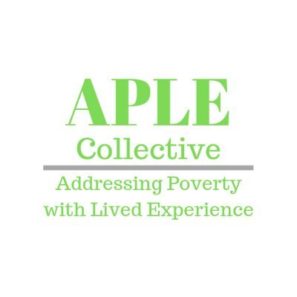Addressing data poverty with lived experience
Phil Parkes, Volunteer Co-ordinator for Expert Citizens CIC and member of APLE Collective, shares a personal reflection on the campaign to fix the digital divide.
Hi, my name is Phil Parkes, and I am the Volunteer Co-ordinator for Expert Citizens CIC. I am also part of the APLE Collective of which Expert Citizens CIC are founding members. I was asked to write this about APLE’s recent Digital Divide Webinar and I thought, rather than write a run through of what happened, I would take you through my thought processes and how they have changed over time in relation to this issue.
I didn’t have a great childhood to say the least – and this was followed by a rough early adult life. But I feel these experiences have led me to be more solution focused. I finally got the chance to put this into practice once I started to volunteer for the company I now work for in late 2015.
Back then, the Digital Divide wasn’t really on my radar. I was living in a hostel with a few communal computers, I had access to the library and I think, out of ignorance, I thought that was more than sufficient.
I was also in the midst of addiction and starting to think about getting this in check. This meant I was very inwardly thinking – when you reach that part of your recovery, you believe that only you can change things and I think I took this thought process into general life.
I believed that everyone was responsible for their own life and had the power to change what they wanted to change – while certain aspects are true, I realised that there are systemic inequalities that need addressing to allow this.
During my time as a volunteer, I became sober and I managed to gain employment. Over this period, I became more aware of the societal flaws and inequalities that act as restrictions on people’s capabilities to make changes. It was during my time working with APLE on the Digital Divide campaign that this became all too clear – this motivated me to co-facilitate a workshop at our webinar.
I have come to the understanding that digital access is now a human right. Merely pointing out that people can use a local library is not good enough – why should anybody have to use a public place to do what is now a necessity? The pandemic proved how essential digital access is: you cannot get a doctor’s appointment without the internet, you can’t shop without the internet – I could go on. Many families were forced to decide between the ability to do a full shop and being digitally active, with only charities and the communications companies actively trying to close the digital divide.
It was for this reason amongst many others that our workshop focused on how reliant we were on being online for everything and thinking about exactly whose responsibility it was to provide fair and equal access. I for one believe that this responsibility lies solely with the Government and basic free Wi-Fi should be available for everyone. I believe that departments like the DWP, who insist on people only communicating online, should help with devices.
We as APLE are still going strong with our campaign, gaining support from local MPs, taking our findings to APPGs. We’re reaching out to organisations to share our vision and to help us attain our goal of free access for all – and we do not plan on stopping.
About APLE Collective’s campaign
APLE Collective’s Digital Divide Campaign has involved writing letters to Secretary of State Oliver Dowden, writing to 9 Metro Mayors, writing to thirteen Members of Parliament. We have spoken at the Bristol Poverty Institute, ARVAC Annual Lecture, held stalls at the Insights Conference and spoken at the APPG on Universal Credit. We have published a briefing paper and we are shortly to publish a Policy Press book on our Socially distanced activism. We have also hosted two webinars of our own examining how we might address the digital divide. From our latest webinar we have a fact sheet which will be published soon, that draws together best practice on how to address the digital divide with lived experience.
June is APLE Month and we will be publishing a series of blogs, amplifying the voices of lived experience groups across the UK and hosting a book launch. We are delighted to be participating in the Data Poverty Lab with Good Things Foundation and know that our commitment to participatory work with partners will be a positive move towards addressing the Digital Divide.

APLE Collective
APLE Collective stands for ‘addressing poverty with lived experience.’ They started in 2018 with four founding members; Thrive Teesside, Expert Citizens, ATD Fourth World and Dole Animators. They have since grown to a Collective of eleven.
They have devoted campaigning to having a voice and sharing our lived expertise on poverty. They campaign on the United Nations International day for the Eradication of Poverty (17th October) and campaign to address the Digital Divide.
